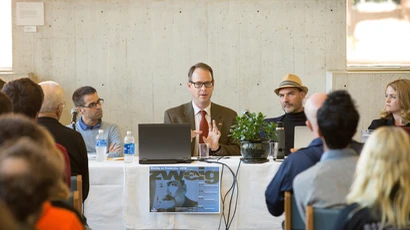
Graduate Program Faculty Profiles
Graduate Faculty Profiles
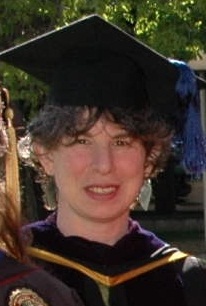 KimMarie Cole
KimMarie Cole
Ph.D. English Language and Linguistics (University of Wisconsin-Madison, 2002); MA TESOL (Monterey Institute of International Studies, 1989); B. A. French (University of Nebraska-Lincoln, 1984)
My research interests lie at the intersection of several different fields: Sociolinguistics, Discourse Analysis and Educational Linguistics. This work allows me to look at and talk about power dynamics, identity development, gender, curriculum development and the theoretical connections between different pedagogical approaches. I also have a background in Composition Theory, and Curriculum Development that I can draw on in both my research and teaching. I'm beginning to branch into the field of eco-linguistics and would welcome the opportunity to work closely with students in that area. Most often in my work I look at face to face interactions between people; the same theoretical tools can be applied to other kinds of texts and a wide range of settings.
Texts: Young Adult author studies
Contexts: Comparative approaches to Discourse Analysis; Competing Approaches to the Study of Grammar; Talk and Learning in Classrooms; Teaching Writing in the secondary schools
Theories: Critical Discourse Analysis; Sociolinguistic Theories; Conversation Analysis; Critical Pedagogy
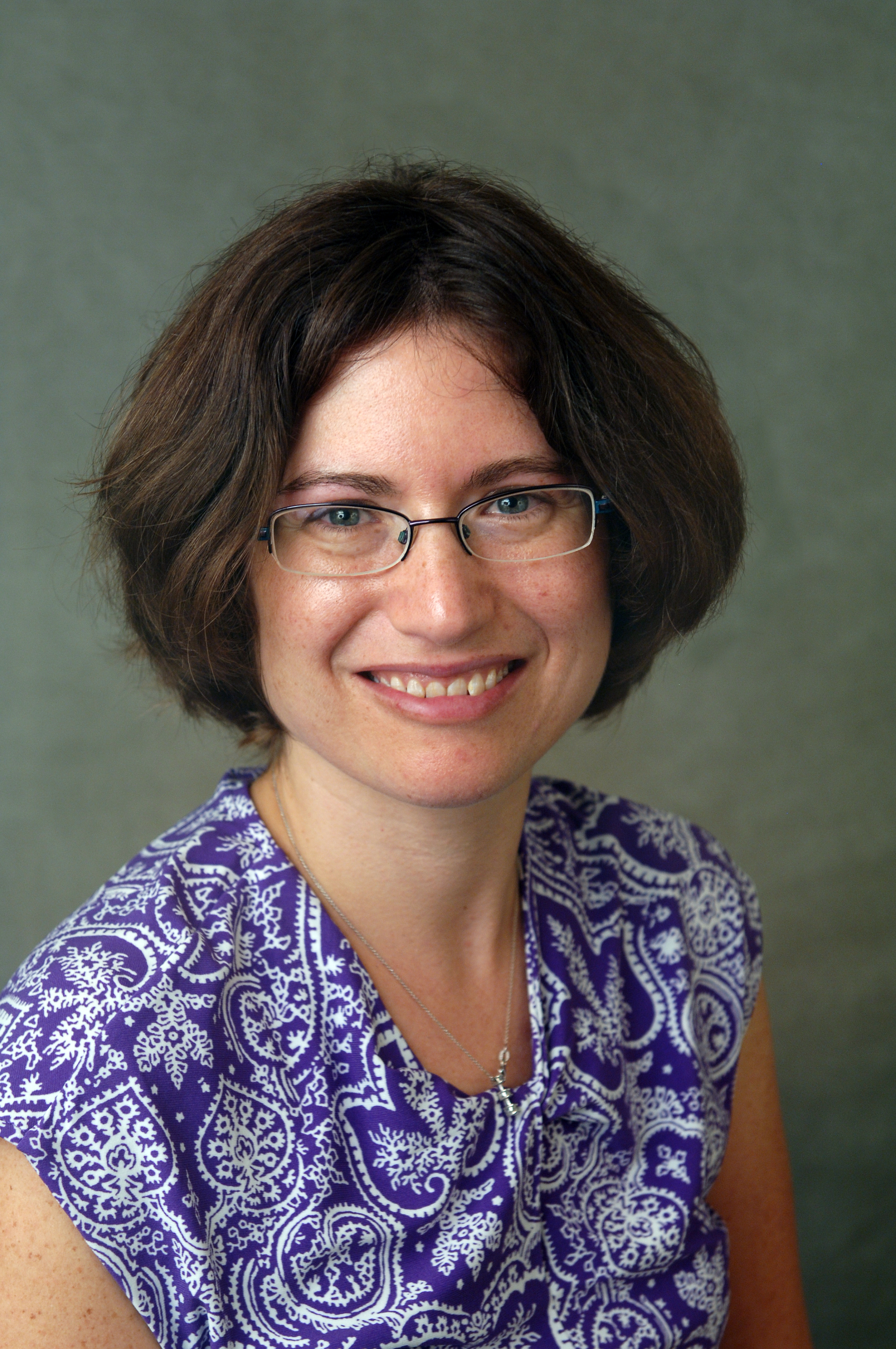 Natalie Gerber
Natalie Gerber
Ph.D. English (University of California, Berkeley, 2001); M.A. American Studies (New York University, 1994); B.A. English & B.S. Film and Broadcasting (Boston University, 1992); William T. and Charlotte N. Hagan Young Scholar/Artist Award (2016)
My research and/or teaching interests include poetry and poetics, theories of versification, modern poetry, and the history and structure of the English language. My scholarship compares poets' claims about their versification to their actual practice and explores how these prosodic choices reverberate against formations basic to the English language, i.e., intonation and syntax. As a teacher, I also look for opportunities to draw upon my background in film, dance, and the 20th-century arts to consider aesthetic form as an embodiment of imaginative responses to ideological, political, and other pressures.
Texts: modern poetry and poetics; free verse; modernism
Contexts: rhythm and meter; history of poetry and poetic form; 20th-century literary and artistic movements
Theories: comparative theories of versification; linguistic approaches to poetics
 Christina Jarvis
Christina Jarvis
Ph.D. English with minor in Women's Studies (The Pennsylvania State University, 2000); M.A. English with minor in Women's Studies (The Pennsylvania State University, 1995); B.A. English and History (Rutgers University, 1993). Chancellor's Award for Excellence (2007); Fredonia College Council Award for Community Engagement (2015)
My research and teaching interests include 20th-Century American literature, gender studies, war and popular culture, American Studies, contemporary sustainability issues, feminist theory, environmental literature, and civic engagement. While my past publications have focused on intersections between war, gender, and embodiment, my current research investigates the history of and dialogues about conservation in the U.S. I am also beginning new projects on ecotourism, stewardship of public lands, and Kurt Vonnegut's connections to sustainability. In the past I have taught graduate seminars on Twain and Vonnegut, American Modernisms, War and Gender, Interdisciplinary Perspectives on the American Family, and Cold War American Literature.
Texts: Modernist and postmodern American fiction, selected writings by Vonnegut and other 20th-century American writers, environmental literature
Contexts: historical/comparative explorations of 20th-century literature and culture (modernism, postmodernism, Cold War America, environmental history)
Theories: feminist theory, gender studies, theories of embodiment, sustainability, and cultural studies
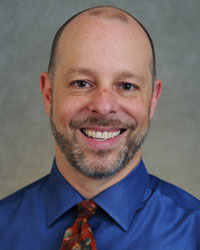 David Kaplin
David Kaplin
Ph.D. English and Ph.D. Comparative Literature (Indiana University, 2005). M.A. English (Indiana University, 1999); J.D. (Boston University School of Law, 1989); B.A. Letters (Wesleyan University, 1986).
My research attempts to elucidate how nineteenth-century English texts speak about individual and national identity. Currently, I am exploring Victorians' contradictory attitudes towards lying and "Englishness"; the function of the unspoken (intuition, first impressions, instinctual reactions, and experiences of the uncanny) in Dickens's novels; and representations of unmanliness in Trollope's novels. My legal background makes it hard for me to draw away from close readings, narrative theory, and socio-political criticism, but I also utilize gender theory, genre history and development, and the scholarship of nationalism (mainly emerging from postcolonial theory).
Texts: nineteenth-century English poetry and prose, nineteenth-century European novel
Contexts: representations of individual and group identity formation, gender codes and containment strategies, history of the novel or a subgenre thereof, the uncanny and the supernatural, comparative notions of justice, secrecy in Victorian fiction
Theories: narratology, cultural studies, new historicism, nationalism and postcolonialism
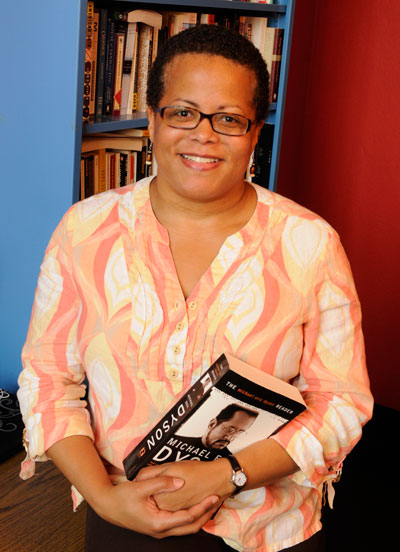 Saundra Liggins
Saundra Liggins
Ph.D. Literature (University of California, San Diego, 2002); M.A. English (University of Wisconsin, Milwaukee, 1994); B.A. Literature/Writing (University of California, San Diego, 1992)
My primary areas of interest are in African-American and gothic literatures. I find all time periods of African-American literature fascinating, but have lately been drawn to contemporary African American female authors, and the works of Colson Whitehead. Gothic literature might be an odd pairing with African-American literary texts, but, in addition to appreciating the unique perspective on culture that gothic literature provides, my research looks at how African-American writers have historically employed, and are presently utilizing gothic elements in their texts. Most recently, I have been investigating the literary, historical and cultural representations of the Underground Railroad in the United States and Canada. Theories of the border, nationality, race, and gender influence my approach to these texts in my own writing/research and in the classroom.
Texts: African-American authors; gothic novelists; multicultural literature
Contexts: historical and comparative approaches to gothic literature and to the Underground Railroad; the Harlem Renaissance; early and contemporary African-American literature
Theories: cultural studies; black feminist criticism; race theory
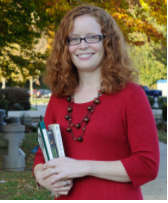 Heather McEntarfer
Heather McEntarfer
Ph.D. English Education (SUNY Buffalo); M.F.A. Creative Nonfiction (University of Pittsburgh); B.A. Integrated Language Arts with writing minor (Hiram College)
My research focuses on addressing gender and sexuality in teacher education. I want to better understand how we can prepare teacher candidates to understand LGBTQ identities, to understand deeply how gender operates in schools and society, and to consider how they can intervene as teachers by working against homophobia, heretonormativity, and other forms of oppression. I am particularly interested in the role narrative and reflective writing can play in that work. I am also interested in youths’ experiences in gay- straight alliances. My teaching addresses broader themes within English education as well, including adolescent literature and New Literacies Theory. Finally, I am interested in creative nonfiction and the teaching of writing.
Texts: Young adult literature studies; media texts; creative nonfiction
Contexts: Gender, Literature, and Media; Culture, Narrative, and Literacy; Composition Theory and Practice Theories: Queer theory, positioning theory, critical educational theories, sociocultural theory, narrative theory
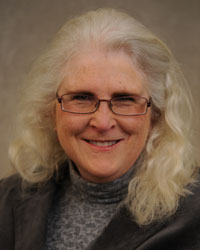 Shannon McRae
Shannon McRae
Ph.D. English (University of Washington); MPhil Irish Studies (University College Dublin); B.A. English (University of Michigan); SUNY Chancellor's Award for Excellence in Teaching (2016)
The research areas I trained in are transatlantic Modernism, medieval Irish literature and culture, virtual communities, queer theory, and gender theory.I love teaching about the spiritual and mythological undercurrents of world literatures, the relationship between literature and history, and non-literary texts, especially film. My current book project is about early twentieth-century small town American tourist attractions as expressions of spiritual desire--because it is an incredibly interesting topic and it's a way of justifying my passion for road trips.I currently direct the American Studies program.
Texts: 20th century poetry, modernism, mythologies, medieval Irish literature, film, television, American literature, history and culture
Contexts: gender, history, folklore, comparative mythologies, places and localities, technology, modernism, postmodernism, American literature, history, and popular culture
Theories: psychoanalysis, film study, queer theory, Marxism, structuralism, post-structuralism
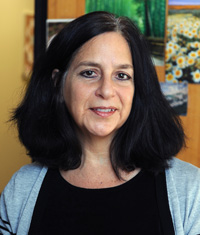 Jeanette McVicker
Jeanette McVicker
Ph.D. Comparative Literature (SUNY Binghamton, 1988); MA Philosophy (SUNY Binghamton, 1986); B.A. English (Purdue University, 1981). President's Award for Excellence (2008); SUNY Chancellor's Award for Excellence in Teaching (2013)
My research and teaching interests are multi-disciplinary and historical; I attempt to connect various discourses of the 20th century that don't always speak easily together (such as literature, philosophy, journalism/culture and criticism, shaped by the focuses of gender/ethnicity/class/nation). This perspective took shape when I directed the women's studies program and coordinated an interdisciplinary journalism minor in the past. It articulates itself in my most recent publications (on Virginia Woolf, subjectivity and truth, and journalism in the age of terror), in addition to an active role in campus conversations on restructuring general education and, more broadly, repositioning the humanities within the public university. Graduate course interests might look like:
Texts: 9/11 and the war on terrorism; the Bloomsbury Group; contemporary theory/philosophy; journalism
Contexts: historical/comparative explorations of 20th c literature, philosophy, culture; US journalism history; history of criticism/aesthetics
Theories: feminism & gender theory, contemporary and poststructuralist theory; media theory
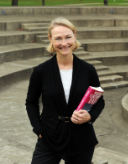 Ann Siegle Drege
Ann Siegle Drege
Ph.D. English (University of North Dakota, 2000); M.A. English (Middlebury College—Bread Loaf School of English, 1990); B.A. English/Education (Concordia College, Moorhead, 1983)
My teaching and research interests straddle both literature and pedagogy. My research particularly focuses on the use of drama as a pedagogical approach. Drama and other active strategies help students engage with texts, ideas, and meaning-making, certainly with dramatic literature but also with fiction, poetry, and writing. I'm also interested in visual learning, classroom cohesion, and ways that advances in neuroscience are informing brain-compatible classrooms. On the literature front, my approach to dramatic texts links page and stage. Consideration of set, lighting, staging, costumes, and interpretation all come into "play" while exploring drama. I stress the importance of seeing plays in production, when at all possible, as part of exploring the text.
Texts: modern and contemporary drama/playwrights
Contexts: drama as pedagogy, brain-based learning, teaching Shakespeare, realism in modern drama/contemporary drama, drama/film adaptation
Theories: process drama, constructivism
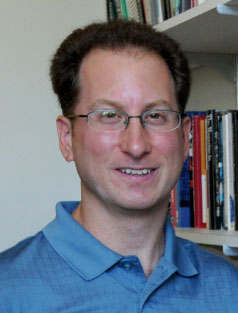 Bruce Simon
Bruce Simon
Ph.D. English (Princeton University, 1998); M.A. English (Princeton University, 1993); A.B. English and Mathematics (Hamilton College, 1991)
My research and teaching interests span the range of U.S. literatures and their intersections with American studies, black studies, critical race/ethnicity studies, and postcolonial studies. Although my primary research focus is on pre-Civil War America, I'm also interested in the history and governance of higher education, the nature of academic and intellectual work, the structure and status of the profession, and the conditions of teaching and learning. For more about me, please see my website (www.fredonia.edu/department/english/simon/index.htm) and my academic blog, Citizen of Somewhere Else (http://citizense.blogspot.com/).
Texts: fairy tales, comics, fantasy fiction, science fiction, romanticism, magical realism, postmodernism; Hawthorne, Melville, Faulkner, Tolkien, Morrison, Silko, Ishiguro, Brust, Gaiman, Moore, Mitchell, Valente, Jemisin....
Contexts: colonial, early national, and antebellum U.S. literatures; popular culture; academic labor and governance
Theories: critical race/ethnicity studies, postcolonial studies, trauma studies, cultural studies
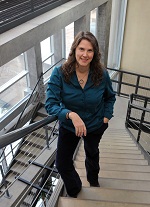 Susan Spangler
Susan Spangler
Ph.D. in English Studies (Illinois State University, 2006); M.A. in English (University of Illinois at Springfield, 1992); B.S. in English Education (Illinois State University, 1986)
I taught high school English in Illinois for 16 years and am currently teaching English education, literature, and writing courses as well as supervising student teachers. My ongoing research interests focus on patterns of experience in student teaching and issues in composition and rhetoric, particularly writing assessment. My pedagogical interests include contact zones, small group instructional diagnosis, and teaching for social justice.
Texts: Graphic literature studies
Contexts: Teaching Writing in Secondary Schools, Writing Assessment
Theories: constructivist pedagogies, emerging literacy theories, composition theories
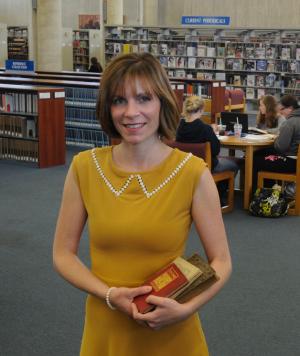 Emily E. VanDette
Emily E. VanDette
Ph.D. in English, (The Pennsylvania State University); M.A. in English (The Pennsylvania State University)
My research and teaching is primarily in nineteenth-century American literature. My recent book, Sibling Romance in American Fiction, 1835-1900, explores the social and political connotations of sibling narratives that respond to moments of national turmoil. My research especially on the recovery of women's literature, and I am devoted to restoring historically marginalized voices to narratives of American literary history. The historical periods that I am particularly interested in include the antebellum era, including such movements as New England transcendentalism, abolitionist literature, Southern domestic fiction, and post-war movements including the rise of literary realism and naturalism, regionalism, romantic "Reconstruction" narratives, and the literatures of the African American nadir. Because I regard literary traditions and texts as active participants in, rather than merely products of, cultural histories, I adopt interdisciplinary approaches to consider how literary texts contribute to such major historical constructions and debates as race, gender, nation/region, imperialism/globalism, and, self/society. I am also interested in the roles that audiences, both within and beyond the realm of professional literary studies, play in our understanding of literary history.
Texts: literatures of "scribbling women" (or, 19th-century American domestic fiction), American romanticism, works of American regionalism and realism from the late nineteenth century, African American literature before the Harlem Renaissance, the poetry of Emily Dickinson and Walt Whitman
Contexts: competing narratives of American nationalisms (particularly pertaining to conversations of race & nation and domesticity & nation), the history of affiliation in America (and the aesthetics of sentiment), historical crises, American literary history
Theories: reception history, feminist pragmatism, cultural studies, historicism, race theories, rhetorical analysis
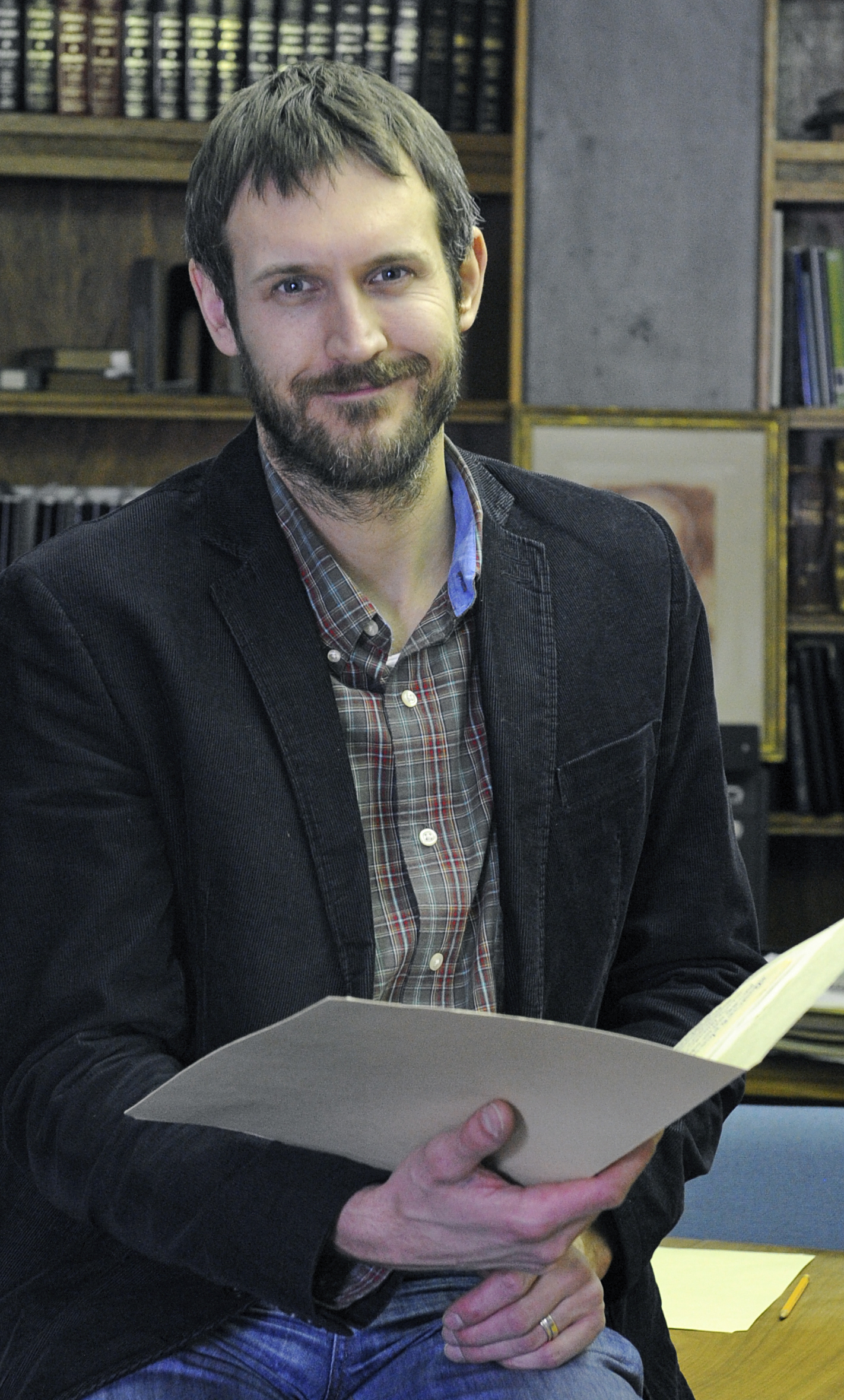 Birger Vanwesenbeeck
Birger Vanwesenbeeck
Ph.D. Comparative Literature (University at Buffalo); M.A. Comparative Literature (University at Buffalo); B.A. Germanic Languages (University of Antwerp)
My primary teaching and research interests lie in twentieth-century American and European literature with a particular focus on Austrian modernism (including psychoanalysis) and the American postmodern novel. I am currently working on two book-length projects: one is a collection with essays on the Austrian-Jewish author Stefan Zweig that I am in the final stages of editing. The other is a monograph on mourning and the comic novel in American literature from Faulkner to Foer. One chapter of this larger book project, on Thomas Pynchon's The Crying of Lot 49, is currently under review. My other previous and forthcoming scholarly publications include William Gaddis: 'The Last of Something' (co-editor) and articles and chapters on Pynchon and Gaddis.
Texts: The Faust myth; Ancients and Moderns; War Poets and Terror Novelists
Contexts: Modernisms; After Kafka
Theories: Psychoanalysis; Trauma Theory; Theories of Modernity
Ici Vanwesenbeeck
Ph.D. Comparative Literature (State University of New York Buffalo, 2005). B.A. Western Languages and Literatures, minor in American Studies (Bogazici University); SUNY Chancellor's Award for Excellence in Teaching (2016)
Texts: Renaissance drama (Turk plays, Roman tragedies). contemporary Turkish literature.
Contexts: My research focuses primarily on the representations of tyrants in Renaissance drama. In particular, I am interested in shifting theories of tyranny in Renaissance Europe and contemporary Middle East.
Theories: theories of tyranny, historical materialism
